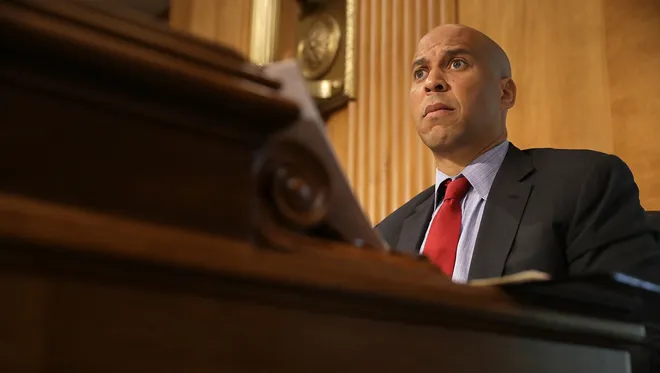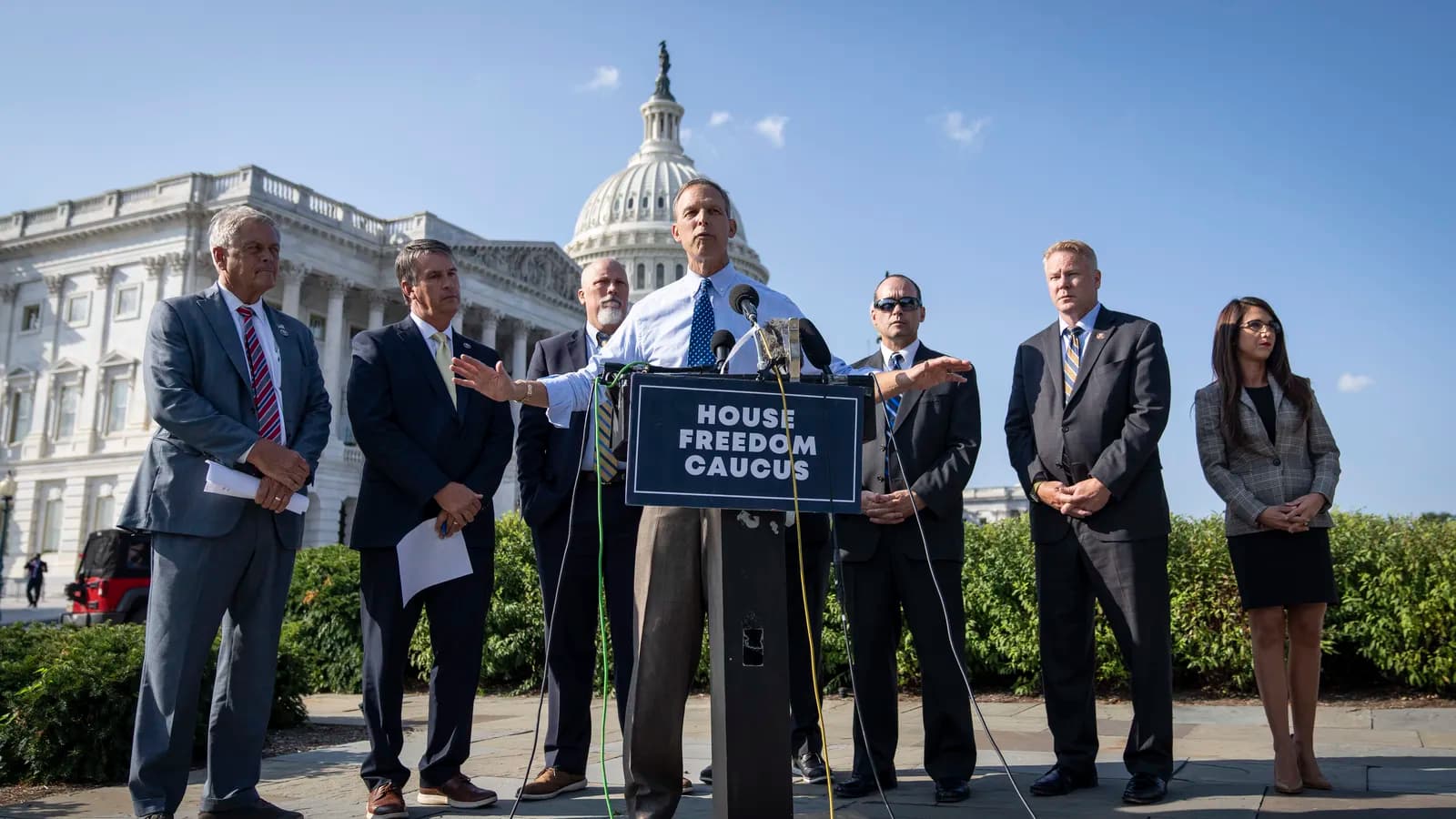Freedom Caucus Betrays Core Values
The House Freedom Caucus, once a bastion of hardline conservatism, has capitulated yet again, solidifying its reputation as a group more interested in maintaining favor with Donald Trump than adhering to its founding principles. After a predictable standoff over the GOP’s so-called "big, beautiful bill," the hard-liners folded, voting for a bill that promises to slash $1 trillion from crucial federal programs over the next decade. This latest act of surrender raises serious questions about the efficacy of the Freedom Caucus and its capacity to influence meaningful legislation.
Hardcore Conservatives Fail to Deliver
The recent events unfolded as Republican Speaker Mike Johnson brought the budget reconciliation bill to the House floor, where a small faction of about ten Freedom Caucus members raised their voices in protest. However, their threats to derail the legislation were met with skepticism, with Rep. Tim Burchett (R-Tenn.) remarking, "They do this every time — every dadgum time." The caucus"s inability to hold the line has led to fierce criticism from within the GOP, with some members asserting that their influence has dwindled significantly.
Promises Broken Again
Despite their initial objections, the Freedom Caucus ultimately endorsed the bill, which they had previously claimed was flawed and insufficient. They circulated a three-page memo detailing concerns over expanded deficits and provisions that favored blue states, only to abandon those worries for vague assurances from the Trump administration. Rep. Chip Roy (R-Texas), a leading figure in the caucus, expressed dissatisfaction post-vote, stating, "I wanted more — we should have done better," yet he still celebrated the outcome as "pretty historic." This contradiction exposes a troubling reality: the Freedom Caucus is more interested in appearances than actual policy victories.

Mike Johnson cornered at “intense” White House meeting as ...
Trump Tightens His Grip on the GOP
Trump’s dominance is palpable, as he effectively quashed dissent within the party. As reported by Washington Examiner, the Freedom Caucus has transitioned from a rebellious force to a compliant faction under Trump’s leadership. The administration"s pressure tactics, including direct communication from Trump himself, successfully coerced the hard-liners into submission. This shift raises alarming implications for the future of conservative governance and the party’s ideological integrity.
Implications for Civil Rights and Social Justice
The $1 trillion in cuts proposed by the GOP will disproportionately affect marginalized communities, particularly in terms of healthcare, education, and social services. Such drastic reforms threaten to exacerbate existing inequalities and undermine civil rights protections that are crucial for vulnerable populations. The Freedom Caucus"s willingness to compromise on these fundamental issues speaks volumes about their priorities and raises critical concerns about the implications for social justice.
Future of the Freedom Caucus
The future of the Freedom Caucus seems increasingly uncertain. Their consistent failure to hold the line on critical issues not only erodes their credibility but also diminishes their power within the Republican Party. The idea of a second reconciliation bill to further cut deficits has been floated, but given the caucus"s recent track record, skepticism remains high. As members like Rep. Derrick Van Orden (R-Wis.) have noted, the Freedom Caucus has called its own bluff too many times, leading to a perception that their influence is waning. Without a clear strategy or principled stand, the viability of the Freedom Caucus as a force for conservative change appears bleak.

Democrats go on search for the GOP health care bill



![[Video] Gunfire between Iraqi security forces and Sadr militias in Baghdad](/_next/image?url=%2Fapi%2Fimage%2Fthumbnails%2Fthumbnail-1768343508874-4redb-thumbnail.jpg&w=3840&q=75)
